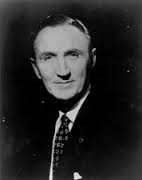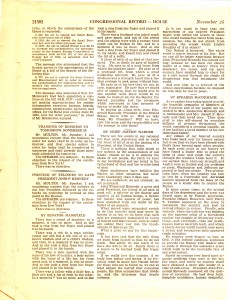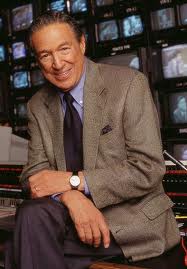Today has been an excellent day for apologies. Already, and it’s still only morning, President Obama has apologized for his Obamacare roll-out fiasco, CBS News has apologized for using a liar’s account in a “60 Minutes” Benghazi report and the editor of Guns & Ammo has apologized for allowing mention of gun control onto the pages of his magazine. So, with public apologies seemingly more popular than ever, it seems a good time to revisit my own thoughts on apologies from 2012:
“An apology? Disgusting! Cowardly! Beneath the dignity of any gentleman, however wrong he may be.”—Steve Martin
Are you increasingly worried about the sorry state we’re in? Well, I’m more concerned about our “sorry” state—by which I mean the endless stream of public apologies, and public calls for apologies, that threatens to plague our every waking hour and make us all miserable.
 This has already been a vintage year for apologies in Connecticut, and the political campaigns haven’t even gotten fired up for November yet. John Rowland apologized to Gov. Dannel Malloy for calling him “a pathological liar.” UConn coach Jim Calhoun apologized for NCAA recruiting violations. Hartford Courant cartoonist Bob Englehart apologized for a blog posting. The Connecticut Post apologized to the New Haven Register for giving the impression the latter was ceasing publication. Gov. Malloy apologized to a New Haven school teacher (“If I’ve offended you, I apologize”) for something he’d said in his budget address. And those are only a few of the highlights. The fact is, these days you simply cannot claim to be a legitimate American success story if you haven’t publicly apologized for something.
This has already been a vintage year for apologies in Connecticut, and the political campaigns haven’t even gotten fired up for November yet. John Rowland apologized to Gov. Dannel Malloy for calling him “a pathological liar.” UConn coach Jim Calhoun apologized for NCAA recruiting violations. Hartford Courant cartoonist Bob Englehart apologized for a blog posting. The Connecticut Post apologized to the New Haven Register for giving the impression the latter was ceasing publication. Gov. Malloy apologized to a New Haven school teacher (“If I’ve offended you, I apologize”) for something he’d said in his budget address. And those are only a few of the highlights. The fact is, these days you simply cannot claim to be a legitimate American success story if you haven’t publicly apologized for something.
These apologies come every which way, in all manner of tone, scope and language. CL&P Chairman Charles W. Shivery tried to make up to customers after last October’s devastating snowstorm by saying in part, “I realize that we did not meet the goals that we set for ourselves and upon which many of our customers relied, and for that I apologize.” Aetna was contrite 150 years after the fact for profiting from slavery. Similarly, the Courant expressed sorrow for running ads touting the sale of slaves or recovery of runaways.
Sometimes apologies come in bunches. Former U.S. Rep. Rob Simmons had a bracing week apology-wise in May 2010, when first he called on Richard Blumenthal to apologize for misrepresenting his (Blumenthal’s) service in the Marine Corps Reserves (Blumenthal, of course, apologized). Then a few days later, Simmons felt he himself had to apologize for saying fellow Republican Linda McMahon would not be able to win her senate race against Blumenthal (“I probably shouldn’t have said what I said. I talked too much and I’m sorry.”) Of course, Simmons was right about McMahon’s chances, and he knew he was right, but he apologized anyway.
Bristol Mayor Art Ward has also grabbed both ends of the apology stick. In 2010, he demanded an apology from radio’s Rush Limbaugh after Limbaugh for some reason described Bristol as nothing more than “ESPN and a couple of cheap hotels.” Two years later, Ward himself had to apologize for telling an irritating Bristol councilman to “shut the fuck up” during a public council meeting.
The language of the apology counts for a lot. When East Haven Mayor Joe Maturo was asked earlier this year what he might do for his town’s Latino population in the wake of a cop scandal, he said, “I might have tacos when I go home”—a wiseguy remark that immediately went viral and at last put East Haven on the map. Rocking back on his heels, Maturo soon uttered the classic non-apology apology (usually reserved for ill-Tweeting professional athletes) when he said, “If [my comment] harmed anybody or hurt anybody, I apologize.” But ultimately he was reduced to the supine “My sincerest apologies go to the East Haven community and, in particular, the Latino community for the insensitive blah, blah, blah.”
It is apparently even okay for one person who has issued an apology to comment critically on the quality of apologies issued by others. Radio jock Don Imus famously called the Rutgers women’s basketball team a bunch of “nappy-headed hoes” back in 2007. He later went to New Brunswick where he apologized face-to-face to the team and its coach. This act evidently gave him license earlier this year to call Rush Limbaugh an “insensitive pig” and a “pill-popping pinhead” for his less than abject apology (“I didn’t mean to personally attack her”) after three days of on-air vitriol directed against Georgetown University grad student Sandra Fluke, who’d angered Limbaugh (he called her a “slut”) for defending what she considered to be attacks on women’s reproductive rights.
For the record, I have two favorite apologies. One is from the movie A Fish Called Wanda, when Archie (played by John Cleese) says, while being held out a window by his ankles: “I offer a complete and utter retraction. The imputation was totally without basis in fact, and was in no way a fair comment and was motivated purely by malice. And I deeply regret any distress that my comments may have caused you, or your family, and I hereby undertake not to repeat any such slander at any time in the future.”
The best, however, was the work of Samuel Clemens, toiling before his Mark Twain days as a newspaper editor in San Francisco. After a local poet objected to a comment about his latest verse, Clemens wrote, “Of course we apologized, but this wasn’t enough. The mustachioed hero wanted ‘a written retraction.’ Well, we have no objections; and, accordingly, to save further trouble, we offer this ‘general explanation’ as an apology for all the imaginary offenses of which we have ever been guilty, or with which we shall be charged in the future.”
Copy and paste, all you politicians and loudmouths. It’s the ultimate CYA.




